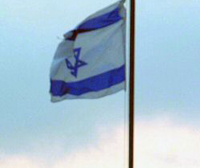Who can disarm Hezbollah, the winner?
Supporters of the radical terrorist group Hezbollah return to the destroyed cities of southern Lebanon. The yellow flags of Hezbollah fly over their vehicles, and the pictures of Hassan Nasrallah, the organization’s leader, are posted on the windshields. Nasrallah said the group had won the war against Israel. The rocket attacks against Israel stopped last Monday, though Hezbollah supporters celebrated the victory both in Lebanon and Iran. Many TV stations around the globe showed the footage that looked quite symbolic: a Hezbollah supporter stands on top of rubble, waving the yellow flag. There was a house in lieu of rubble before Hezbollah won its war against Israel …

The way the people of southern Lebanon took the end of the war was yet another sign of a mythological interpretation of the world at the Middle East. The West is at times either unwilling or incapable of taking into account this interpretation shared by the residents of Lebanon, Iran, and Iraq. The interpretation is, in fact, a world of make-believe courtesy of the people of the Middle East and their idols. Both politicians and regular viewers of TV news in New York, Paris or Moscow normally look at the pictures shown on TV as the reflection of an event that took place. The viewer sees a demolished house, and crowds of refugees heading back to the slums. The TV viewer in the above cities is well aware of the fact that the ruins used to be the usual houses where people had led a quite peaceful life before the Israeli soldiers were captured by Hezbollah guerillas, before the terrorists started firing Katyusha rockets at northern Israel.
On the contrary, the TV viewer in the Middle East sees an entirely different picture. He turns on his TV set and sees the signs of a Victory over the aggressor on display: the yellow flags are flying, the omnipresent pictures of Nasrallah, and the V-signs flashed by those who stream back to southern Lebanon in large numbers. The TV viewer in the Middle East just ignores the fact that Israeli warplanes stopped raiding Lebanon because the UN Security Council had passed a resolution urging the parties involved in the conflict to stop the hostilities. He also seems to ignore the other reason behind the end of hostilities – Hezbollah rockets no longer hit the Israel territory. The TV viewer in the Middle East knows only one thing for sure: his movement has defeated the Zionists. And the day of final victory is nigh. The sentiment is shared by ordinary people in Tyre and Tehran. All of them celebrate a victory that was made up. There is no one who wishes to shed tears over the country reduced to rubble, no one is in the mood of lamenting heavy casualties suffered by both parties of the conflict following the stupid provocation by Sheikh Nasrallah and his supporters. No wet blanket is required for these moments of jubilation. The locals clasping pictures of Nasrallah guide Western TV crews across the ruins, talking profusely in an attempt to convince them that no Hezbollah guerillas had ever treaded that part of Lebanon. They call heatedly on the foreigners to share the joy of victory gained by Hezbollah and the entire Lebanon over the Zionists.
Now the question is: who can disarm Hezbollah the Winner? What kind of the Lebanese armed forces will have the guts to disarm the guerillas, which did not get spooked by the Israeli troops and put up a tough fight instead? We can envisage a barrage of comments should Hezbollah be disarmed: the collaborators, the Zionists and U.S. agents are taking away weapons from our heroes and defenders… In the end, Sheikh Nasrallah is a two-faced character similar to the legendary Ali Baba, hero of a tale in The Arabian Nights’ Entertainments. Nasrallah not only gives orders to his subordinates to fire rockets at the peaceful cities and settlements, he is also the leader of a political party, which works hard to win the hearts and minds of the voters in one of the most democratic countries of the Middle East. Judging by the history of the former Soviet Union, we do know that a democracy does not always mean a country whose citizens are realists.
It is worthy of note that the current nightmare in Lebanon took place after the so-called “revolution of cedars” occurred in the country.
The event was welcomed enthusiastically by the West. U.S. President George W. Bush even filed it under the string of the “colored revolutions.” No doubt about it, Lebanon became more democratic, and the Syrian troops were pulled out. On the other hand, Hezbollah became stronger, and now it is taking the opportunity to strengthen its position by inventing a myth of an organization that defeated the Israelis.
Politcom
Translated by Guerman Grachev
Pravda.Ru
Discuss this article on Pravda.Ru English Forum
Subscribe to Pravda.Ru Telegram channel, Facebook, RSS!


